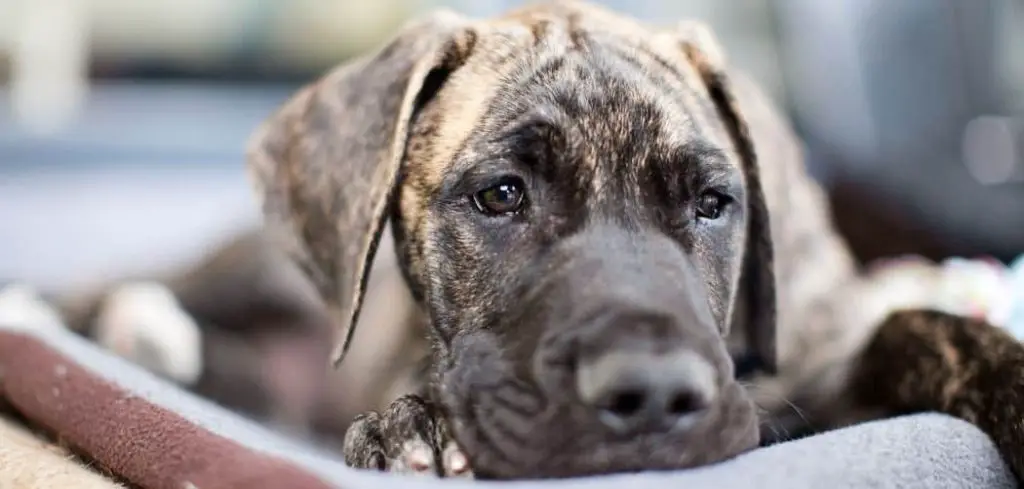It can be alarming when your dog has runny poop and suddenly stops eating. These two symptoms together often point to underlying digestive upset, infections, or other medical concerns that shouldn’t be ignored.
We outline the common causes of runny poop in dogs and not eating, what you can do at home, and when to seek veterinary help.
Dog Runny Poop and Not Eating — Why It Happens
When your dog has diarrhea and no appetite, it’s usually a sign of gastrointestinal irritation, infection, or a systemic issue. Dogs may experience runny stool from dietary indiscretion, parasites, or viral infections, while the lack of appetite could be due to nausea, abdominal discomfort, or fever.
In some cases, more serious problems like pancreatitis, parvovirus, or organ dysfunction can present this way. The combination should prompt close monitoring, especially if symptoms persist more than a day.

Common Causes of Dog Runny Poop and Not Eating
Dietary Indiscretion
Dogs are notorious for eating things they shouldn’t—table scraps, garbage, or unfamiliar foods. This can irritate the digestive tract, leading to diarrhea and stomach upset.
When their stomach feels unsettled or inflamed, dogs often stop eating until they feel better.
Mild cases may resolve on their own, but more severe bouts can lead to dehydration and require supportive care.
Intestinal Parasites
Roundworms, hookworms, giardia, and other intestinal parasites can cause loose, foul-smelling stools and loss of appetite.
Puppies and dogs in high-risk environments (kennels, shelters, dog parks) are especially susceptible.
A dog with parasites may also experience weight loss, vomiting, or bloated appearance.
If left untreated, parasites can cause anemia and malnutrition.
Read more: Dog Pooping Blood and Not Eating or Drinking (What it means)
Viral Infections
Parvovirus is a life-threatening illness, especially in unvaccinated puppies. It causes profuse diarrhea—often bloody—and complete loss of appetite.
A dog with parvo will usually appear extremely lethargic and may vomit repeatedly.
This condition requires urgent veterinary intervention and isolation to prevent transmission.
Pancreatitis
Pancreatitis is inflammation of the pancreas and can cause both vomiting and diarrhea, along with a sudden refusal to eat.
Dogs often experience abdominal pain and may adopt a praying position (front legs down, rear end up) to relieve discomfort.
This condition is often triggered by a high-fat meal or table scraps. It’s especially common in breeds like Miniature Schnauzers.
Inflammatory Bowel Disease (IBD)
Chronic diarrhea and poor appetite can be signs of IBD, where the gut becomes persistently inflamed. Dogs may also have intermittent vomiting, gas, and weight loss.
IBD typically develops gradually, but can flare up acutely. Managing IBD often requires dietary changes and medications.
Liver or Kidney Disease
Systemic illness such as liver failure or kidney dysfunction can also cause runny stool and appetite loss. These organs help filter toxins; when they’re not functioning properly, the buildup of waste in the blood leads to nausea and digestive upset.
Additional symptoms might include increased drinking, vomiting, yellowing of the eyes or skin, and weakness.
What to Do If Your Dog Is Pooping Runny and Not Eating
First, withhold food for 12–24 hours if your dog is otherwise healthy, to give the GI tract a chance to rest. Always provide access to clean water to avoid dehydration.
After the fasting period, you can offer a bland diet like boiled chicken and plain rice in small portions. Avoid fatty or rich foods. If your dog eats and the stool firms up, it may have been a minor upset.
You can also consider giving a dog-safe probiotic to help restore gut flora. If your dog shows signs of worms, schedule a vet visit for stool testing and deworming treatment.
Monitor your dog closely—if diarrhea continues beyond 24–48 hours or they still refuse to eat, it’s time to consult your vet.
When to Call or Visit Your Vet
Contact your vet promptly if:
Your dog has diarrhea for more than 48 hours.
There is blood or mucus in the stool.
Vomiting occurs alongside the diarrhea.
Your dog is very lethargic or showing signs of pain.
They refuse water or are showing signs of dehydration (dry gums, sunken eyes).
They are a young puppy, senior, or have preexisting health conditions.
These could all indicate a more serious underlying problem that needs medical attention.
Read more: Dog Pooping Black and Not Eating (Is it an emergency?)
Key Takeaway
If your dog is pooping runny and not eating, it’s often due to digestive upset or illness, but it could signal something more serious.
Keep them hydrated, try a bland diet, and monitor for changes.
If symptoms persist or worsen, a veterinary visit is the safest route. Acting early can help your dog recover faster and prevent complications.
